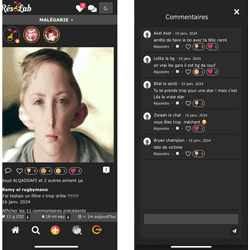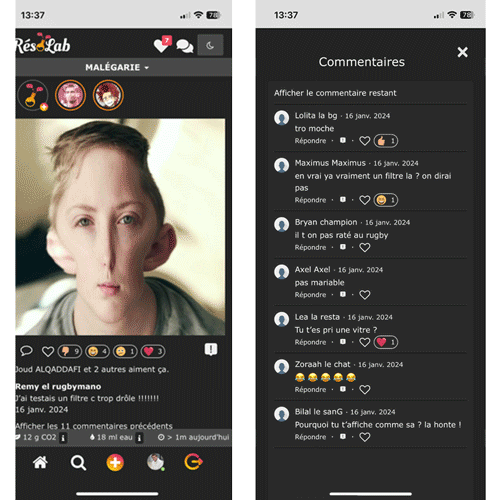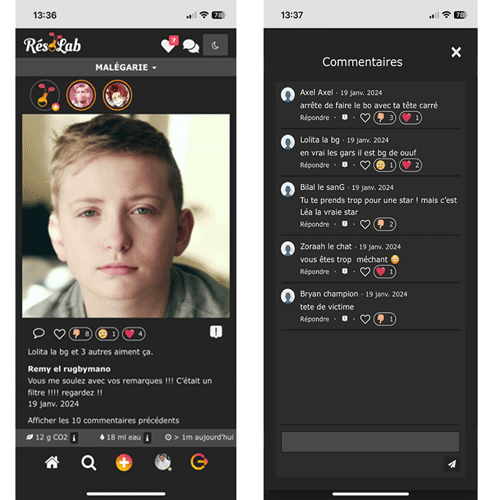Role-playing: working on children's digital skills

From theory to practice
The interest of ResoLab is to offer a different way of preventing the misuse of screens that is complementary to the various existing systems (awareness sessions, Net walkers, etc.) by allowing children to experiment.
Thus, with its "social network" type platform, they have a space for exchanges supervised and moderated by youth professionals. This space allows you to test the codes of online sociability through experimentation but also to develop digital skills. It also allows us to play on theoretical learning and practical learning
Indeed, if children integrate the concepts of good digital sociability during awareness sessions, they then find it difficult to recontextualize them in practice in front of a screen in a real situation.
This is why the project partners created "scenarios" directly online. There are 5 of these and are related to the school curriculum around the skills of DigComp, the European repository of digital skills.
Scenarios
For example, we have created a scenario relating to DigComp competency 4.3 (Protecting health and well-being) in which the objective is to be able to identify a situation of cyber violence/cyberbullying and to know how to react.
It followed a classroom intervention as part of the French program to combat school bullying set up by the Ministry of National Education (pHARe program).
To do this, a fake situation of violence was created and posted online on the classroom space. So we created a fake profile with a fake name who the victim was and other fake profiles were witnesses or perpetrators of violence.

This publication as well as the comments are left for several days and later, a second publication with its salvo of comments is put online:

The idea was to see how the young people in the class would take up this publication. Was it going to be reported? Were the young people going to intervene (like or comment).
The observation
Following the awareness-raising time, all students are able to define bullying (and cyberbullying). However, when the fake post simulating cyberbullying was published, no one was able to identify this situation and report this content. Some young people even reacted by mocking the publication.
It was therefore essential to offer situations similar to those that children may encounter in "mainstream" social networks to help them increase their skills.
The activity ended with a debriefing session in the presence of the teachers to involve them in the children's digital practices.

